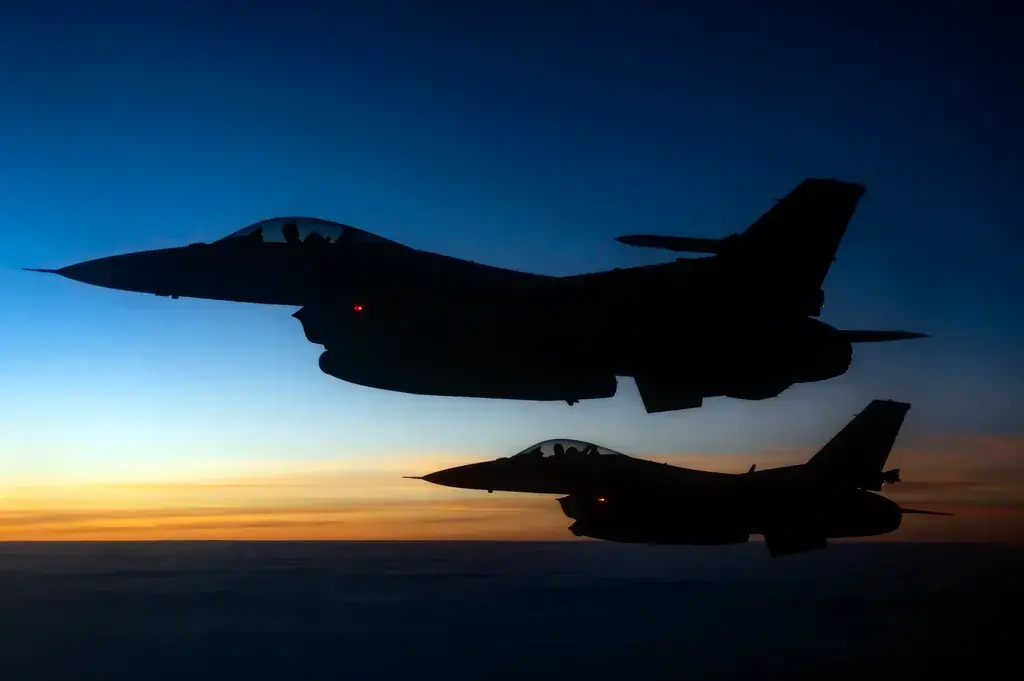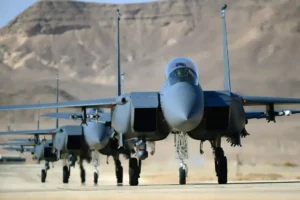In a poignant display of support for Bosnia’s territorial integrity and adherence to the 1990s Dayton peace accords, the U.S. embassy in Sarajevo has confirmed the forthcoming flight of two F-16 fighter jets over the region on Monday.

On Monday, the U.S. embassy in Sarajevo confirmed that two F-16 fighter jets would conduct a flight over Bosnia, marking a display of support for the country’s territorial integrity. This demonstration aimed to address concerns regarding alleged secessionist activities among certain factions, particularly those at odds with the 1990s Dayton peace accords.
The planned overflight formed part of a collaborative air-to-ground training initiative involving Bosnia’s national armed forces. This exercise would specifically focus on areas within the northern region of the Balkan country not under Serb control. Emphasizing the context, the U.S. Embassy’s statement highlighted the ongoing separatist rhetoric advocated by Milorad Dodik, the nationalist leader of Bosnia’s post-war Serb region, who has persistently advocated for secession and alignment with neighboring Serbia.
In its official statement, the embassy characterized this joint training as an exemplification of advanced military cooperation beneficial to fostering peace and security within the Western Balkans. Furthermore, it reiterated the United States’ unwavering dedication to safeguarding the territorial integrity of Bosnia-Herzegovina, countering any attempts perceived as contradicting the principles of the Dayton Accords.
The significance of the Dayton agreement, brokered by Washington to conclude Bosnia’s devastating 1992-1995 conflict, cannot be overstated. The accord delineated the division of Bosnia into distinct entities: the Serb Republic (RS) and a Federation shared by Croats and Bosniaks, with a relatively decentralized central government structure.
The embassy’s statement also underlined the legal framework within Bosnia-Herzegovina, specifically noting that the country’s Constitution does not sanction any right to secession. It emphasized a commitment to taking action should any attempts be made to alter this fundamental aspect of the Dayton agreement.
Adding complexity to the situation, Bosnian Serbs were set to commence commemorations for their self-proclaimed statehood day, an event previously deemed discriminatory against non-Serbs by Bosnia’s constitutional court. Anticipated festivities included a scheduled parade involving police and special forces, further contributing to the tensions in the region.
Regarding Dodik, who faces charges at the Sarajevo state court for his involvement in legislation that suspended decisions of the constitutional court and the international envoy overseeing the Dayton accords, his trial had been postponed due to procedural matters raised by his legal team. Dodik, maintaining his stance, declined to enter a plea during these proceedings, further complicating the legal resolution of the issue.







